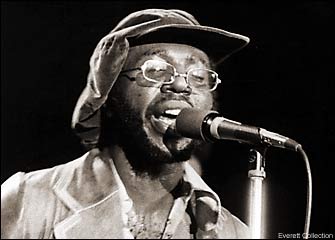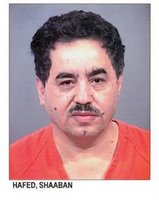
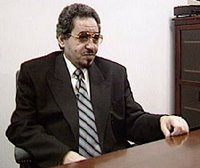
Bob Dylan - It Ain't Me Babe, [It's My Dead Twin Brother] (from "Live 1975, The Rolling Thunder Revue")
Bob Dylan - [Shaaban], Tell Me That It Isn't True (from "Nashville Skyline")
Bob Dylan - [Shaaban], You're Gonna Make Me Lonesome When You Go (from "Blood on the Tracks")
Today, I break my normal pattern of farcical, musical nonsense to bring you the strange tale of Shaaban Hafiz Ahmad Ali Shaaban, also known as Joe Brown, a truckdriver from Greenfield, Indiana. In the summer of 2005, he was indicted for crimes of espionage and conspiring on behalf of the Iraqi government. The information below was copied from a variety of news sources, including The Indy Star, WTHR Channel 13, and The Peru Tribune. This guy is either brilliant or completely retarded. Decide for yourself which you think he is. Either way, I'll miss seeing him on the local news, watching newscasters report these details with a straight face. Keep it surreal, Shaaban Shaaban.
6/9/05: Man accused of selling secrets to Iraq says he's U.S. agent - A Greenfield truck driver accused of trying to sell American secrets to Saddam Hussein's government in Iraq said in federal court that he was a U.S. secret agent. The man, who identified himself as Shaaban Shaaban Hafed, said in court Wednesday that he met at a military recruiting station in Indianapolis with someone he thought was an Army officer. Shaaban said he hoped to pass along information he thought would save the lives of U.S. troops in Iraq but was instead seen as trying to trade secrets…Investigators say Shaaban is a seasoned intelligence officer trained by the Soviet KGB and has at least 13 aliases. The indictment alleges he traveled to Baghdad in 2002 and offered to sell officials the names of U.S. intelligence operatives in Iraq for millions of dollars… If convicted, he could face deportation or decades in prison. Shaaban has claimed the U.S. government has him mixed up with his now-dead twin brother, whom he claims worked for the Central Intelligence Agency. Shaaban gave more than three hours of rambling testimony that touched on what he claimed was a phone call with Yasser Arafat while Shaaban worked at the Palestinian embassy in Moscow. He told how he and his twin brother were born to Palestinian parents in Jordan in 1952. He said his parents, displaced from their homes and impoverished when Israel was created, gave him up to a rich Lebanese woman. Shaaban pointed to two passports - one from Lebanon he maintains is his and another from Jordan he says belonged to his brother - as evidence that his brother existed. He said his brother died in Chechnya while working as an intelligence agent. Federal prosecutors say there is no twin brother and that Shaaban has maintained two identities, using multiple passports. Brooks demanded names of people who could testify to seeing the twin brothers together. Shaaban said his wife and his brother's wife could as could people from a barbershop and a Middle Eastern restaurant in Chicago near where the brothers once lived together. ''How many do you want?'' he said. Still, Shaaban said he and his brother were not seen in public often because of the stigma of their parents' decision to separate them. Shaaban said his indictment has put American secret agents ''including me'' at risk.
7/26/05: U.S. Attorney Susan Brooks and a team of investigators are preparing for a trial in federal court like no other in Indianapolis, according to legal observers. "The entire US is a battlefield in the war on terror. This is the front line. There is no place in America that is not a target," says Bill Bradford, an expert in national security law and an assistant professor at Indiana University-Purdue University at Indianapolis… Court records indicate his defense could rely in part on testimony from foreign nationals in Jordan and Russia.
1/12/06: Opening arguments begin for accused Iraqi spy - A Palestinian man accused of conspiring to sell U.S. intelligence secrets to Saddam Hussein's government told jurors Tuesday he was secretly working for the U.S. government and may be confused with his dead identical twin. "I have served this country with all my heart," Shaaban Hafiz Ahmad Ali Shaaban said during animated opening statements delivered through interpreters in U.S. District Court. "... I refuse to say I am one person with my brother. I refuse to answer for him on his behalf, and the evidence will show that." Prosecutors said they would prove that Shaaban, 53, maintained multiple identities, intimidated a witness and tried to broker a $5 million deal with the Iraqi intelligence service to sell the names of 60 U.S. agents who were working in Iraq or who were to enter the country before the 2002 invasion…Prosecutors say negotiations broke down before the U.S. coalition-led invasion toppled Hussein's regimen. The former Iraqi agent, who will not be named in court and will testify wearing a disguise, has since been captured and has received "financial assistance" from the U.S. government, Jackson said. [Shaaban] said he is one of 24 children - including five sets of twins - born to a Lebanese mother and an Azerbaijani father. Shaaban said he was sold as a child and did not know of his twin until the two were reunited years later in Moscow. The twins moved to the United States and both worked as truck drivers, he said. He said his twin died in Chechnya…A later charge of witness tampering was added after prosecutors said he threatened another brother who lives in California and had agreed to testify against him.
1/17/06: Inside federal court, Shaaban Hafiz Ahmad Ali Shaaban confronted his former wife, asking Svetlana Shaban, a witness for the prosecution, if the government paid for her testimony against him. She said, "no."…Shaaban called her a liar then complained he didn't have money to buy his own witnesses. "It is an unfair trial." Gathering up an arm load of notes, he continued. "I don't want this justice. This is not justice. "It is showtime. I agree to removal." US marshals removed Shaaban in shackles.
1/18/06: When confronted with photograph and fingerprint evidence, Shaaban Shaaban first denied that he was also a U.S. citizen under the name of Joe Brown, claiming Brown was really his cousin who looked a lot like him. Later in the interrogation, Shaaban admitted changing his name, with permission of the CIA, because he once worked for the KGB, saying, "I'm always fearing for my life." What about accusations that he is a terrorist? Asked point blank, should the United State fear you, Shaaban replied, "No, no, no, I have nothing against America. I would not bite the hand that helps me."
1/19/06: Shaaban Shaaban insists he's no criminal, claiming he's a victim of miscommunication, misinformation and mistaken identity. "It's a very big mistake, but it is a bad mistake," said Shaaban. Shaaban says the accusations are ridiculous. "We are a superpower. We are a superpower. It is shameful to say that an Indiana truck driver has secrets to sell Saddam Hussein. Where I bought it, a flea market in Washington DC[?]," asked Shaaban. Shaaban says he attempted to infiltrate Hussein's regime and save American lives. "I am part of this work. I am proud for that I have evidence that I did this for the USA. I hate Saddam, I hate Saddam," Shaaban went on. In Shaaban's Greenfield home, FBI agents found computer files praising Hussein, even an unsigned contract proposing Shaaban provide, at a price, human shields to protect Iraq from invading forces. "You can put on your computer what you want. We are in a free country. We have free speech, we have first amendment. I can print, I love Saddam Hussein. I can print, I hate Saddam Hussein or I love George Bush or I hate George Bush," he argued. U.S. district court Judge John Tinder is giving Shaaban great leeway. He also suggested that instead of doing interviews, Shaaban spend more time preparing his defense. "I flipped on the TV last night and was surprised to see you giving an interview," Tinder said, referring to comments Shaaban gave to WISH (Channel 8) on Wednesday. He said Shaaban's frequent claims of having too little time to review evidence and prepare for his trial each day were beginning to "ring hollow." "I would suggest you focus on this rather than any media campaign," he said. However, Shaaban ignored Tinder's advice, granting interviews Thursday at the federal courthouse to WTHR (Channel 13) and WXIN (Channel 59).
1/20/06: Shaaban grills self on witness stand - Shaaban, continuing to act as his own attorney, asked himself questions, which he responded to in Arabic. However, after an hour of struggling to overcome frequent objections from the lead prosecutor, Assistant U.S. Attorney Sharon M. Jackson, he turned the questioning over to his standy-by lawyers, William H. Dazey Jr. and Michael J. Donahoe.
1/22/06: Shaaban Hafiz Ahmad Ali Shaaban said on the witness stand in U.S. District Court Friday that he first met his twin at the Kuwaiti Embassy in Moscow in 1979. He said he was working at the Palestinian Embassy and had gone to the Kuwaiti Embassy to pick up a letter…According to Thursday's court testimony, the government and Shaaban's boss arranged for Shaaban to travel to Disney World in Orlando, Fla., with his wife and son in October 2004. While they were away, FBI agents searched Shaaban's home in Greenfield, about 20 miles east of Indianapolis, where they took photographs, photocopied documents and copied his computer hard drive. A federal magistrate authorized an undisclosed search under the Patriot Act. Charles Mong, president of CLM Freight Lines, said Thursday that the FBI asked him to tell Shaaban the Florida vacation was a gift from him.
1/24/06: Shaaban shows video in spy trial - No CIA witnesses were called to testify, although the 53-year-old Palestinian asserts that his meetings with Iraqi intelligence officials were part of a covert operation directed by "Jim in the CIA." To show he was "not anti-American," Shaaban battled prosecutors to play a videotape of a neighborhood Fourth of July celebration in Greenfield, where he had lived until his arrest…Shaaban Hafiz Ahmad Ali Shaaban wanted to show jurors he's an average joe and not the Joe Brown prosecutors say met with former high-ranking officials of Iraq's now-disbanded intelligence service, the Mukhabarat. U.S. District Judge John D. Tinder allowed the airing of the tape over prosecution objections. The video depicts a neighborhood celebration in 2004 during which Shaaban comes out of his rental home onto the lawn while an American flag near the front door of the home flaps in the wind. "This is our flag," Shaaban said, in response to a question from one of his standby attorneys. During questioning, Shaaban, whom the evidence shows also goes by Shaaban S. Hafed and Joe Brown, refused to answer to "Mr. Shaaban." So Jackson began referring to Shaaban as "Mr. Defendant." In turn, Shaaban called her "the government lawyer."
1/25/06: Jurors in a federal conspiracy trial this afternoon convicted an Indiana truck driver accused of offering to sell U.S. secrets to the former Iraqi government on six of seven counts against him. No evidence was presented during his trial, however, that he had access to such information. In tape recordings played in his trial, Shaaban told an FBI undercover agent he never had a list of agents but that he had hoped to receive the information from a Russian contact. Shaaban Shaaban was found guilty, yet defiant and unrepentant. "I am innocent. I will be innocent and one day they will find I am innocent."…Shaaban insists he loves America and is a victim of racial profiling. "Two thousand years ago another Palestinian was crucified and he was innocent." Shaaban, who represented himself in court, will try to talk the judge out of giving him a lengthy prison sentence. US District Attorney Susan Brooks was pleased with the conviction of man she says threatened national security. "Yes, I do believe the country is safer now that the jury has spoken." Shaaban, who also goes by Shaaban S. Hafed and Joe Brown, could face up to 55 years in prison.
1/26/06: The jury's verdicts rejected Shaaban's unsupported claims that federal prosecutors had him confused with a deceased twin and that the CIA had sent him to Iraq as part of a "psychological war" preceding the U.S. invasion. Attorney Michael J. Donahoe: "It was hard to sit and watch him make errors in strategy," he said. "He really didn't know what he was doing... For a lay person, though, he did a pretty good job...I'm disappointed in the verdict," he said. "I don't think he represents a threat to our national security."
Koopa’s Moral of the Story: Sometimes fools can be the most dangerous of all. Sometimes they are just foolish.



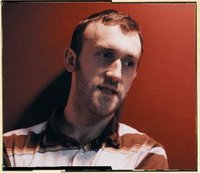
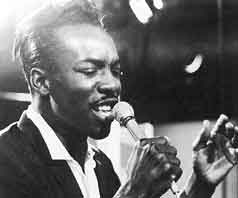
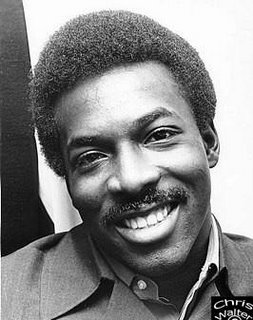
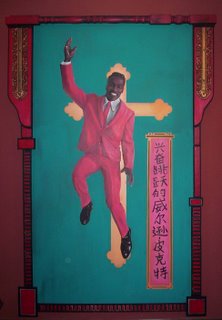 If you can't feel Wilson Pickett, you've got no soul at all
If you can't feel Wilson Pickett, you've got no soul at all


